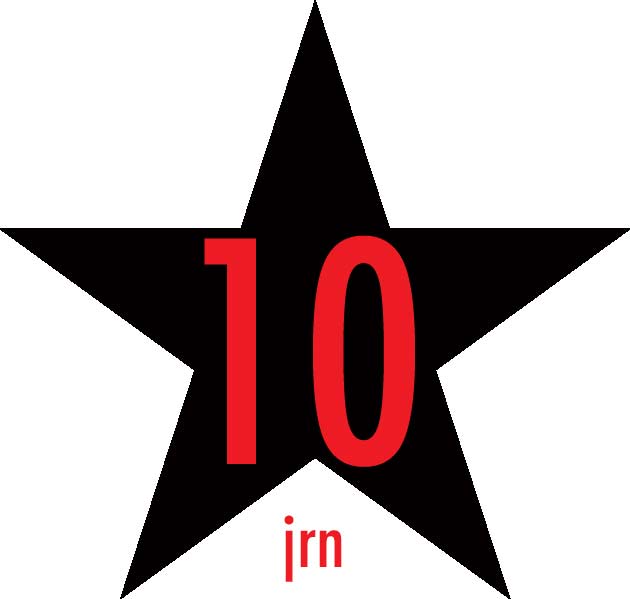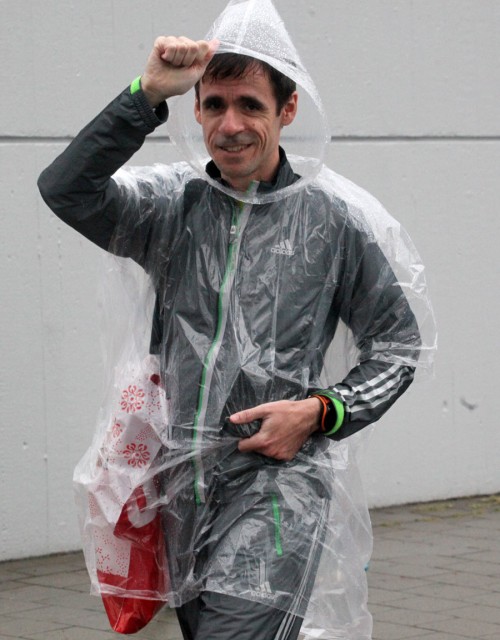 Ten years ago today Japan Running News started with a story about the withdrawal of Wataru Okutani from the Japanese men’s marathon team just before the start of the Osaka World Championships. The concept was to provide a high-quality and reliable source for information in English about as much of the fascinating and exciting but otherwise invisible world of Japanese distance running as possible, and in the ten years of almost daily updates since then that ideal hasn’t changed.
Ten years ago today Japan Running News started with a story about the withdrawal of Wataru Okutani from the Japanese men’s marathon team just before the start of the Osaka World Championships. The concept was to provide a high-quality and reliable source for information in English about as much of the fascinating and exciting but otherwise invisible world of Japanese distance running as possible, and in the ten years of almost daily updates since then that ideal hasn’t changed.
 Brett Larner im Regen von Münster im Jahr 2013. (c) H. Winter
Brett Larner im Regen von Münster im Jahr 2013. (c) H. Winter
The timing couldn’t have been better, capturing the arcs of Samuel Wanjiru, Arata Fujiwara and Yuki Kawauchi, the rise of the Hakone Ekiden-driven university men’s running circuit and of Japanese men’s sprinting, and the buildup toward the 2020 Tokyo Olympics. Along the way JRN has grown in ways we couldn’t have expected, bringing writing jobs for publications worldwide and TV commentating work, the chance to work directly with some of Japan’s best athletes and to travel around the world, and becoming the definitive English-language resource for both interested people and for other writers looking to add expertise to their own articles and books on the subject, credited or uncredited.
Below are four lists of some of JRN’s best work over the last decade. The first lists our ten most popular stories by total read count, and the second gives the most-read story for each year excluding those on the first list. The third and fourth are lists of ten editor’s picks of some of our favorite work that didn’t necessarily rack up the views, the third made up of translations from Japanese media and the fourth of original contnet. There’s no telling what the future holds, but we’d like to thank all the Japan Running News readers, supporters and colleagues over the last decade and hope that these stories remind you of some of the highs and lows of the years so recently gone by. Thanks for reading.
Das Timing konnte nicht besser sein, indem er die Bögen von Samuel Wanjiru, Arata Fujiwara und Yuki Kawauchi, den Aufstieg der Hakone Ekiden-getriebenen Universitätsmänner und der japanischen Männer sprinten, und den Aufbau der Olympischen Spiele in den Olympischen Spielen in Moskau. Entlang des Weges, den JRN in einer Weise gewachsen ist, die wir nicht erwarten konnten, schaffende Arbeitsplätze für Publikationen weltweit und TV-kommentierte Arbeit, die Chance, direkt mit einigen der besten Athleten Japans zu arbeiten und um die Welt zu reisen und das endgültige Englisch- Sprachressource für Interessierte und für andere Schriftsteller, die Fachwissen zu ihren eigenen Artikeln und Büchern zum Thema hinzufügen, gutgeschrieben oder uncredited machen möchten.
JRN’s All-Time Top Ten Most Popular Stories
- Last-Placer Named Winner After Entire Rest of Field Disqualified – Feb. 15, 2017
- Mekonnen Wins Tokyo Marathon, Amateur Kawauchi 3rd in 2:08:37 – Feb. 27, 2011
- Kipyego, Habtumu Win Tokyo Marathon, Fujiwara Back With 2:07:48 – Feb. 26, 2012
- Aoyama Gakuin University Breaks Izumo Ekiden CR in First-Ever Big Three University Ekiden Win – Oct. 8, 2012
- Hawkins and Kirwa Win Marugame Half, Takeshita Over Muiru in Kanagawa – Feb. 5, 2017
- Samuel Wanjiru Shares the Secret of Training to Win – Dec. 24, 2008
- History Comes Calling – Kipsang and Chepchirchir Run Japanese Soil Records at Tokyo Marathon – Feb. 26, 2017
- Kawauchi Breaks World Record for Half Marathon in a Suit by 18 Minutes – Mar. 13, 2016
- Hakone Champion AGU’s Isshiki Leads 27 Under 1:03 and 265 Sub-1:06 at National University Half Marathon Championships – Mar. 1, 2015
- Joseph Gitau Takes Surprise Win in Fukuoka in 2:06:58 – Dec. 2, 2012